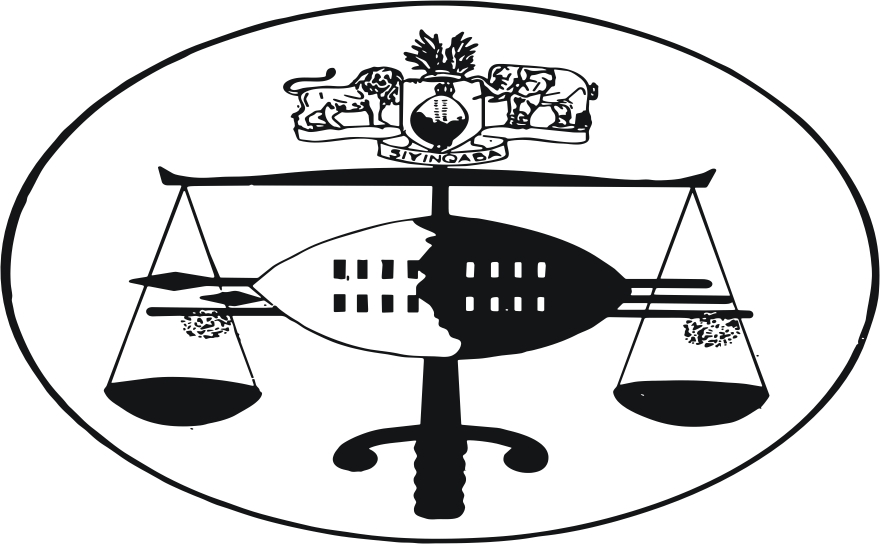
IN THE HIGH COURT OF SWAZILAND
IN THE HIGH COURT OF SWAZILAND
JUDGMENT
Case No. 1269/2004
In the matter between
NEDBANK (SWAZILAND) Plaintiff
And
KENNETH NGCAMPHALALA 1st Defendant
KENNY G. SUPPLIERS 2nd Defendant
Neutral Citation: Nedbank Swaziland v Kenneth Ngcamphalala & Another (1269/2004) [2012] SZHC 129 (18th June 2012)
Coram: Dlamini J;
Heard: 16th April 2012
Delivered: 18th June 2012
Application for removal of interdict – defendant opposing application on the basis of non-joinder – requirement on joinder.
Summary: Defendant having obtained judgment against plaintiff for the sum of E113,795-12 attached plaintiff’s immovable property, defendant placed a covenant against plaintiff’s property and obtained a garnishee order against plaintiff in respect of E113,795-12. The garnishee duly complied and transferred the amount. Plaintiff seeks for an order removing the covenant placed against his immovable property.
[1] Defendant did not file any affidavit dealing with the merits but raised a point in limine. Defendant cited the Deeds Registry Act section 93 which reads:
“Before an application is made to the court for authority for an order involving the performance of an Act in the Deeds Registry, the applicant shall give the Registrar at least fourteen day’s notice before the hearing of the application and the Registrar may submit to the court such report thereon as he may deem desirable to make”.
[2] Plaintiff however, opposes Defendants’ point in limine in that a joinder of the Registrar of Deeds is not a peremptory in the circumstance of the case. The section compels one to cite the Registrar provided that the Registrar has to effect a specific act in his register. In casu, orders prayed by plaintiff do not envisage the Registrar to do any act in the registry, the plaintiff outlined.
[3] Isaacs in Beck’s Theory and Principles of Pleadings in Civil Actions 4th Ed at page 11state in relation to joinder:
“The general rule may be stated that when a person has an interest of such a nature that he is likely to be prejudicially affected by a judgment given in the action, such person must be joined either as plaintiff or defendant. The true test is whether or not he has a direct and substantial interest in the proceedings. A person should also be joined if it would be convenient in the administration of justice to so join him”.
[4] However, in casu the question that I am seized with is whether it was necessary to join the Registrar of Deeds as 2nd defendant by reason that the order sought calls for an act in the deeds registry.
[5] Section 6 of the Deeds Registry Act 1968 as amended highlights the duties of the Registrar of Deeds. From Section 6 one can conclude that the overall function of the Registrar is to maintain records of deeds.
Section 6 (k) stipulates as one of the duties of the Registrar:
“register notarial bonds and cancellations and cessions thereof including cessions made as security, and cancellations of such cessions if made as security, as well as deeds of hypothecation lodged with him under the Financial Institution (Consolidated) Order No.23 if 1975, and any cession, substitution, cancellation or amendment of any such deed”.
[6] From the aforegoing, the Registrar of Deeds has to register any amendment to deed of hypothecation or any cancellation or substitution.
[7] Plaintiff informs the court at paragraph 5 of his founding affidavit that “a covenant was duly placed on this property being car 255/200 on 22nd September 2009”.
[8] It is clear that although this was at the instance of the defendant, the Registrar had to make an entry in his records of this covenant. Fortiori, should the same be removed, the Registrar must be notified. The defendant cannot mero motu do so.
[9] In the circumstances I hold that the Registrar ought to have been joined as the 2nd defendant in this matter.
[10] There is another peculiar circumstance surrounding this case. The deponent moved the application in person although during the hearing he was represented. The joinder ought to have been done at the time of drawing the papers.
[11] It is common cause that when the plaintiff drew the papers, he could not access the services of a lawyer for reasons known by everyone and which were beyond the control of plaintiff and therefore could be considered as an unrepresented litigant.
[12] For the aforegoing this court will grant plaintiff leave to join the Registrar of Deeds and serve the application to the Registrar for a report in terms of Section 93.
[13] No order as to costs shall be made as defendant has not suffered any prejudice more so because defendant did not argue the matter on merits. Schriener J. A. in Trans –African Insurance Co. Ltd v Maluleka 1956 (2) S.A. 273 (AD) at 278 held in respect of the similar conclusion:
“No doubt parties and their legal advisers should not be encouraged to become slack in the observance of the Rules, which are an important element in the machinery for the administration of justice. But on the other hand technical objections to less than perfect procedural steps should not be permitted, in the absence of prejudice, to interfere with the expeditious and if possible, inexpensive decision of cases on their real merits”.
[14] On the above I enter the following orders:
i) Plaintiff is granted leave to co-join the Registrar of Deeds;
ii) The Registrar of Deeds is ordered to file his report, if any in terms of Section 93 of the Deeds Registry Act 1968 as amended;
iii) Defendant is ordered to file his answering affidavit within 14 days from date of this judgment;
iv) No order as to costs.

DLAMINI J.
JUDGE
For Applicant: S. C. Dlamini
For Respondent: J. Henwood